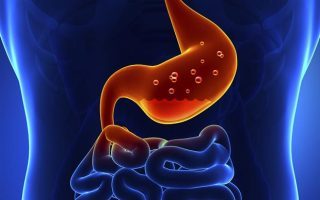- Home
- Editorial
- News
- Practice Guidelines
- Anesthesiology Guidelines
- Cancer Guidelines
- Cardiac Sciences Guidelines
- Critical Care Guidelines
- Dentistry Guidelines
- Dermatology Guidelines
- Diabetes and Endo Guidelines
- Diagnostics Guidelines
- ENT Guidelines
- Featured Practice Guidelines
- Gastroenterology Guidelines
- Geriatrics Guidelines
- Medicine Guidelines
- Nephrology Guidelines
- Neurosciences Guidelines
- Obs and Gynae Guidelines
- Ophthalmology Guidelines
- Orthopaedics Guidelines
- Paediatrics Guidelines
- Psychiatry Guidelines
- Pulmonology Guidelines
- Radiology Guidelines
- Surgery Guidelines
- Urology Guidelines
Proton Pump Inhibitors may trigger or aggravate allergies, finds study

Patients who take prescription drugs to suppress gastric acid are more likely to subsequently use anti-allergic drugs, suggests a study in Nature Communications.
Proton Pump Inhibitors or PPIs reduce symptoms in gastroesophageal reflux and dyspepsia and promote healing of peptic ulcers, and are usually applied for long-term usage such as in eosinophilic esophagitis, or as co-medication with NSAIDs such as in cardiovascular diseases or chronic pain. Their favourable safety profile prompts doctors to use them on a long term basis.
Researchers at MedUni Vienna in collaboration with the Austrian Social Insurance Institutions conducted a study to assess the use of anti-allergic medication following the prescription of gastric acid inhibitors.
They found that proton pump inhibitors or PPIs correlate with subsequent prescriptions for anti-allergy medication.
The researchers using Austrian insurance claims data, compared adults who filled any prescription for a gastric acid-inhibiting drug (including proton-pump inhibitors and H2 receptor antagonists) with those who hadn't filled such prescriptions from 2009 to 2013. They found that users of gastric acid-inhibiting drugs were significantly more likely than nonusers to subsequently fill prescriptions for anti-allergic drugs (5.1% vs. 2.6%).
Principal investigator Erika Jensen-Jarolim warns against uncontrolled use: "So-called 'stomach protectors' should not be used for any longer than necessary. They prevent protein digestion, change the microbiome in the gastrointestinal tract and increase the risk of allergic reactions. As soon as they have fulfilled their prescribed medical function, they should be stopped as quickly as possible."
Gastric acid fulfils an important function in the digestive tract. The acid-dependent enzymes contained in it break down proteins in the food and take them for further processing. It also acts as a barrier against bacteria and other pathogens. If these functions are diminished because of inhibited gastric acid production, allergens can find their way into the gut unprocessed. This can trigger allergies or aggravate the symptoms of people with pre-existing allergies.
The authors conclude: "Our findings confirm an epidemiological association between gastric acid suppression and development of allergic symptoms, in line with previous mechanistic animal trials and human observational studies."
For further reference log on to: Nature Communications article

Disclaimer: This site is primarily intended for healthcare professionals. Any content/information on this website does not replace the advice of medical and/or health professionals and should not be construed as medical/diagnostic advice/endorsement or prescription. Use of this site is subject to our terms of use, privacy policy, advertisement policy. © 2020 Minerva Medical Treatment Pvt Ltd